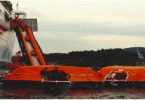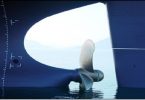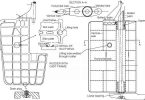-
Mechanical (Air) Foam
Mechanical foam is produced by mixing a foam concentrate with water to produce a foam solution.
The bubbles are formed by the turbulent mixing of air and the foam solution. As the name air foam implies that the bubbles are filled with air. Aside from the workmanship and efficiency of the equipment, the degree of mixing determines the quality of the foam. The design of the equipment determines the quantity of foam produced. There are several types of mechanical foams, similar in nature, but each has its own special fire-fighting capabilities.
Types of mechanical foams include the following:
(a) Protein Foam
Protein foams were the first types of mechanical foam to be marketed extensively and These foams are usually produced by the hydrolysis of waste protein material, such as protein-rich animal waste (i.e., hoofs and horns) and vegetable waste that is hydrolyzed (subjected to a chemical reaction with water that produces a weak acid). In addition, stabilizing additives and inhibitors, such as mineral salts, are added to prevent corrosion, resist bacterial decomposition, to control viscosity and increase their resistance to withering from the heat of a fire.
At the time of a fire, the protein foam concentrates are mixed with fresh or seawater in 3% or 6% solutions. The foam concentrate can produce foam with all types of water, except water that is contaminated with oil. When antifreeze is added, foam can be produced in subfreezing temperatures down to -23.3°C (-10°F).




